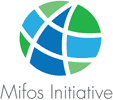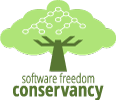Topics
Portland 251/252
Portland 255
9:00am
Power Git: Rerere, bisect, subtrees, filter branch, worktrees, submodules, and more
Brent Laster (SAS)
1:30pm
Portland 256
1:30pm
Full stack JavaScript development with the GRANDstack (GraphQL, React, Apollo, and the Neo4j database)
William Lyon (Neo4j), Kevin Vangundy (Neo Technology)
C123/124
9:00am
Redux + WebSockets: Let’s build a real-time multiplayer game.
Ian James (FamilySearch), Matthew Larson (FamilySearch)
D135/136
1:30pm
Introduction to OpenTracing: Follow your requests from mobile and web clients to microservices and monoliths
Priyanka Sharma (GitLab), Ted Young (LightStep), Aleksey Masluk (LightStep)
D137/138
9:00am
D139/140
1:30pm
The CIVIC platform: Collaborative data science in the cybernetic ecosystem
Catherine Nikolovski (Hack Oregon), Michael Lange (CIVIC Software Foundation), Jaron Heard (CIVIC Software Foundation)
E143/144
1:30pm
Open source game development with Godot
Paris Buttfield-Addison (Secret Lab), Jon Manning (Secret Lab), Tim Nugent (Lonely Coffee)
E145/146
E147/148
B110-112
F150
9:00am
2-DAY TRAINING
Machine learning with TensorFlow: From linear algebra to neural networks
Rich Ott (The Pragmatic Institute)
F151
5:00pm
grey space saver only
8:00am
Morning coffee service
| Room: Portland Ballroom Foyer
10:30am
Morning Break
| Room: Portland Ballroom Foyer
3:00pm
Afternoon Break
| Room: Portland Ballroom Foyer
12:30pm
Food Truck Lunch
| Room: Convention Center Plaza
9:00am-12:30pm (3h 30m)
Artificial intelligence, TensorFlow
Software development, Tools
Getting started with TensorFlow
Joshua Gordon (Google)
Josh Gordon leads a friendly introduction to deep learning, covering computer vision, natural language processing, and structured data classification. You'll learn how to use TensorFlow—the world’s most popular open source machine learning library—preview the latest APIs, explore best practices, and discover the resources that will help you continue learning.
1:30pm-5:00pm (3h 30m)
Evolutionary architecture
Incremental architecture
Allen Holub (Holub Associates)
If you still use large up-front design phases, you'll likely encounter problems with your design as you implement. The solution is to build around a domain-focused metaphor that allows for incremental changes while maintaining coherence throughout. Allen Holub demonstrates how to develop an effective and coherent architecture incrementally as the code evolves.
9:00am-12:30pm (3h 30m)
Software methodologies
Techniques, Tools
Power Git: Rerere, bisect, subtrees, filter branch, worktrees, submodules, and more
Brent Laster (SAS)
If you're doing anything with open source these days, the chances are very high that you're working with Git. Many people know enough of Git's basic operations to get them through but haven't found the time to learn about Git's advanced functionality. Join Brent Laster to take your Git skills to the next level and learn useful techniques for managing your source code more easily than ever before.
1:30pm-5:00pm (3h 30m)
Session
9:00am-12:30pm (3h 30m)
Live coding
DevOps, Software development
Practical monitoring with Prometheus and Grafana
Jess Portnoy (Kaltura)
Prometheus is an open source monitoring and alerting toolkit, while Grafana is the leading open source software for time series analytics. Jess Portnoy explores the Prometheus architecture and its various tools and walks you through erecting an end-to-end monitoring and alerting infrastructure with the Prometheus stack.
1:30pm-5:00pm (3h 30m)
Emerging languages
Core programming concepts, Software development
Full stack JavaScript development with the GRANDstack (GraphQL, React, Apollo, and the Neo4j database)
William Lyon (Neo4j), Kevin Vangundy (Neo Technology)
William Lyon and Kevin Vangundy explore full stack JavaScript application development using the GRANDstack (GraphQL, React, Apollo, and the Neo4j database) for building web applications backed by a graph database and Cypher, the query language for graphs, as they walk you through building a simple movie recommendation web application.
9:00am-12:30pm (3h 30m)
Live coding
Node, Techniques
Redux + WebSockets: Let’s build a real-time multiplayer game.
Ian James (FamilySearch), Matthew Larson (FamilySearch)
Many popular services like Uber and Google Docs employ real-time data to engage users, but traditional web technologies like REST and Ajax were not designed for the real-time web. Ian James and Matthew Larson share an alternative approach to real-time data using Redux and WebSockets that is straightforward and scalable. And just to spice things up, you'll learn it by building a multiplayer game.
1:30pm-5:00pm (3h 30m)
Cloud strategies and implementation, Kubernetes
DevOps, Tools
pgKubernetes tutorial
Josh Berkus (Red Hat)
Over the last year, it has become not only possible but also compelling to run many of your database workloads on Kubernetes—and it's simpler than you think. Join Josh Berkus to learn how to build and configure your own high-availability, containerized database application stack using Postgres, Patroni, and OpenShift.
9:00am-12:30pm (3h 30m)
Cloud strategies and implementation
DevOps, Techniques
Serverless content delivery
John Chapin (Symphonia)
The lines between static and dynamic content are blurred, and it’s more difficult than ever to choose the right technologies for your requirements and budget. John Chapin takes you on a step-by-step journey from hosting static content on AWS S3 to deploying dynamic, complex business logic mere milliseconds away from your users, with AWS CloudFront, Lambda@Edge, and more.
1:30pm-5:00pm (3h 30m)
Distributed computing
DevOps
Introduction to OpenTracing: Follow your requests from mobile and web clients to microservices and monoliths
Priyanka Sharma (GitLab), Ted Young (LightStep), Aleksey Masluk (LightStep)
As more enterprises adopt microservices, using distributed tracing to monitor and provide a complete picture of a software system is an increasingly necessary skill for developers and DevOps engineers. Priyanka Sharma, Ted Young, and Alex Masluk offer an introduction to the OpenTracing API, which allows engineers to understand how the components in their systems are interacting end to end.
9:00am-12:30pm (3h 30m)
Session
1:30pm-5:00pm (3h 30m)
Distributed computing
Hands-on serverless with OpenFaaS and Python
Erich Stoekl (1990), Jonas Rosland (VMware)
Eric Stoekl and Jonas Rosland walk you through building a serverless application. You'll start off by deploying OpenFaaS to your laptop with Docker and then learn how to build, deploy, and invoke serverless functions in Python. You'll finish by building a GitHub bot that puts all your new knowledge together into a single application.
9:00am-12:30pm (3h 30m)
Emerging languages
Kotlin for Android developers
Kenneth Kousen (Kousen IT)
Kenneth Kousen offers an overview of Kotlin, with a focus on using it for Android development. You'll learn about Kotlin's essential syntax, data classes, operator overloading, extension functions using the Anko library, generics, working with collections and functional operations, interacting with the Sqlite database, and more.
1:30pm-5:00pm (3h 30m)
Live coding
Geek lifestyle, Software development
The CIVIC platform: Collaborative data science in the cybernetic ecosystem
Catherine Nikolovski (Hack Oregon), Michael Lange (CIVIC Software Foundation), Jaron Heard (CIVIC Software Foundation)
Catherine Nikolovski, Michael Lange, and Jaron Heard offer an overview of Hack Oregon's CIVIC, a new approach to interactive computing inspired by complex information challenges in the civic space, which packages real-world data into universal standards and provides integration tools and powerful cloud computing to anyone with an internet connection.
9:00am-12:30pm (3h 30m)
Evolutionary architecture
.NET
.NET Core 2.0: From acquisition to containers
Shayne Boyer (Microsoft)
Shayne Boyer offers a hands-on overview of .NET Core 2.0. Whether you prefer a command line, a simple editor, or a full IDE, you'll learn how to get the bits, create console applications, and do cross-platform targeting. You'll also explore ASP.NET Core web development and .NET Core application tools and deployment.
1:30pm-5:00pm (3h 30m)
Emerging languages
Software development, Tools
Open source game development with Godot
Paris Buttfield-Addison (Secret Lab), Jon Manning (Secret Lab), Tim Nugent (Lonely Coffee)
Paris Buttfield-Addison, Jonathon Manning, and Tim Nugent walk you through building 2D games using the open source game engine Godot. You'll get a hands-on, rapid-fire introduction to using Godot's IDE and its programming language, VisualScript—a visual block-base environment—as you learn how to build games that run on almost any platform in a powerful, entirely open source environment.
9:00am-12:30pm (3h 30m)
SMACK stack
Software development
Streaming microservices with Akka Streams and Kafka Streams
Boris Lublinsky (Lightbend)
Boris Lublinsky walks you through building streaming apps as microservices using Akka Streams and Kafka Streams. Along the way, Boris discusses the strengths and weaknesses of each tool for particular design needs and contrasts them with Spark Streaming and Flink, so you'll know when to choose them instead.
1:30pm-5:00pm (3h 30m)
Software methodologies
Business, Techniques
A practical introduction to coaching conversations
Heidi Helfand (Procore Technologies)
Listening is power. By tuning in and applying self-management and directed curiosity, you can help others solve their own problems instead of telling them what to do, giving them the tools they need to be leaders in your organization rather than order takers. Heidi Helfand leads a crash course in coaching conversations, helping you become a better and more empowering leader, coworker, and friend.
1:30pm-5:00pm (3h 30m)
Sponsored
Learn to Ignite (sponsored by PayPal)
Danese Cooper (NearForm), Cedric Williams (PayPal)
Have you ever wanted to give an Ignite talk but didn't know where to start? Are you new to public speaking and having trouble arranging your talk? Or maybe you're a savvy speaker who needs tips to fine-tune short-form talks or just want to work on your presentation skills. If any of this sounds familiar, this workshop is for you.
9:00am-12:30pm (3h 30m)
Software methodologies
Geek lifestyle, Techniques
A 10ish-step program for great tech talks
VM Brasseur (Juniper Networks)
There's a lot more to doing a good talk than just knowing the subject you're presenting. VM Brasseur outlines the 10 (or so) steps to transform "um, OK" to "great!"
1:30pm-5:00pm (3h 30m)
Emerging languages
Networking, Software development
Rusty Sword arena: A crash course in Rust
Nathan Stocks (GitHub)
Join Nathan Stocks for a fast-paced, entertaining, and curiously informative hands-on crash course in the Rust programming language. You'll explore Rust fundamentals as Nathan walks you through creating a fully functional, multithreaded, graphical, networked game client in Rust.
9:00am-5:00pm (8h)
TensorFlow
Machine learning with TensorFlow: From linear algebra to neural networks
Rich Ott (The Pragmatic Institute)
Incorporating machine learning capabilities into software or apps is quickly becoming a necessity. Rich Ott leads you through two days of intensive learning that include a review of linear algebra essential to machine learning, an introduction to TensorFlow, and a dive into neural networks.
9:00am-5:00pm (8h)
Distributed computing, Kubernetes
Containers and Kubernetes boot camp
Ryan Schneider (VMware)
Ryan Schneider demonstrates how to build out a distributed system from ideation to production. You'll learn the essentials needed to develop a highly available and fault-tolerant architecture and gain insight into the practicalities of transitioning to this type of application architecture the right way.
5:00pm-6:30pm (1h 30m)
Plenary: grey space saver only
6:30pm-8:30pm (2h)
OSCON 5K Fun Run/Walk (sponsored by Salesforce)
Lace up your sneakers and join us on Monday evening at the starting line at Vera Katz Plaza for the return of the OSCON 5K Fun Run/Walk. Celebrate your success with music, food, and beverages following the race.
8:00am-9:00am (1h)
Break: Morning coffee service
10:30am-11:00am (30m)
Break: Morning Break
3:00pm-3:30pm (30m)
Break: Afternoon Break
12:30pm-1:30pm (1h)
Break: Food Truck Lunch
Premier Diamond Sponsors
Diamond Sponsors
Elite Sponsor
Rhodium Sponsor
Gold Sponsors
Silver Sponsors
Supporting Sponsors
Premier Exhibitors
Exhibitors
Innovators
Non-Profit Exhibitors
Sponsorship Opportunities
For exhibition and sponsorship opportunities, email oscon@oreilly.com
Partner Opportunities
For information on trade opportunities with O'Reilly conferences, email partners@oreilly.com
Contact Us
View a complete list of OSCON contacts
©2018, O'Reilly Media, Inc. • (800) 889-8969 or (707) 827-7019 • Monday-Friday 7:30am-5pm PT • All trademarks and registered trademarks appearing on oreilly.com are the property of their respective owners. • confreg@oreilly.com




























